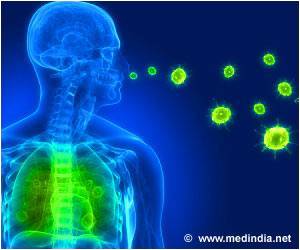. It is estimated that 1 in 36 women in the world will have
).
Endometrial cancer or uterine cancer is one of the cancer types most closely linked to obesity.
Since being overweight or obese is a preventable cause of cancer (3✔ ✔Trusted Source
Obesity and Cancer
Go to source
), researchers wanted to explore the evidence and estimate its risk factor in endometrial cancer.A new international study was conducted by the University of Bristol. This study looked at genetic samples from around 120,000 women from Australia, Belgium, Germany, Poland, Sweden, the UK, and the USA of which around 13,000 had endometrial or womb cancer.
This large statistical analysis looked at the risk associated with high body mass index (BMI) on endometrial cancer risk.
BMI is calculated by dividing a person’s weight (in kilograms) by their height (in meters) squared (commonly expressed as kg/m2). BMI provides a more accurate measurement of obesity than weight alone, and for most people, it is a good indicator of fat levels in the body (3✔ ✔Trusted Source
Obesity and Cancer
Go to source).
They found that for every 5 extra BMI units, a woman’s risk of uterine (endometrial) cancer is almost doubled. This finding estimated the risks to be higher than previous studies that suggested and reflect lifelong weight status rather than a snapshot in time.
In the measurement of BMI, 5 units are the major difference between being overweight (BMI 30) and the obese category (BMI 35) or it is similar to being two stones heavier.
Apart from these findings, researchers have also revealed that two hormones fasting insulin and testosterone are the main factors that increase cancer risk in obese women.
How Does Obesity Influences Endometrial Cancer Risk?
Endometrial cancer starts to develop when the cells in the endometrium (the inner lining of the uterus) start to grow out of control. Excess weight starts to trouble the uterus because of the fat cells that produce a hormone called oestrogen.
The uterus is extremely sensitive to oestrogen. It is one of the hormones that play a major role in the menstrual cycle by controlling the growth and regrowth of the lining of the uterus.
When extra oestrogen is produced from excess fat tissue, it causes the lining of the uterus to grow too much. This extra growth in turn increases the risk of cancer development (3✔ ✔Trusted Source
Obesity and Cancer
Go to source).
By pinpointing exactly how obesity increases the risk of cancer, such as through hormones, researchers could develop drugs that could reduce or increase the level of these hormones in women who are at increased risk in the future.
For example, drugs like metformin used in diabetes treatment can reduce the levels of hormones and research suggests this drug also affects cancer risk, though further study is ongoing.
Emma Hazelwood, lead author of the paper, said: “This study is an interesting first step into how genetic analyses could be used to uncover exactly how obesity causes cancer, and what can be done to tackle it.”
The link between obesity and endometrial cancer is well-known but this large study has investigated exactly why is that at a molecular level.
Researchers look forward to exploring how we can now use this information to help reduce the risk of cancer in people struggling with obesity in the future.
Knowing that obesity increases your chance of developing endometrial cancer, it is important to maintain a healthy weight by eating a balanced diet and staying active.
Ways to Reduce Endometrial Cancer Risk
Apart from managing your weight, there are other things to do that can help you reduce the risk of endometrial cancer. They have been listed as follows (4✔ ✔Trusted Source
Uterine cancer: What’s your risk?
Go to source
) (5✔ ✔Trusted Source
Can Endometrial Cancer Be Prevented?
Go to source
) :
-
Discuss with your physician. -
Get timely treatment for your uterus problems. -
Consider uterus removal option with your doctor if you have hereditary nonpolyposis colon cancer.
Be vigilant and enjoy your womanhood!!!
References:
- Hazelwood, E., Sanderson, E., Tan, V.Y., Ruth, K. S., Frayling, T. M., Dimou, N., et al. (2022). Identifying molecular mediators of the relationship between body mass index and endometrial cancer risk: A Mendelian randomization analysis. BMC Medicine, 20, 125. – (https://doi.org/10.1186/s12916-022-02322-3)
- Endometrial Cancer
– (https://www.acog.org/womens-health/faqs/endometrial-cancer) - Obesity and Cancer – (https://www.cancer.gov/about-cancer/causes-prevention/risk/obesity/obesity-fact-sheet)
- Uterine cancer: What’s your risk?
– (https://www.mdanderson.org/publications/focused-on-health/uterine-cancer–what-s-your-risk-.h14-1592991.html) - Can Endometrial Cancer Be Prevented?
– (https://www.cancer.org/cancer/endometrial-cancer/causes-risks-prevention/prevention.html)
Source: Medindia



